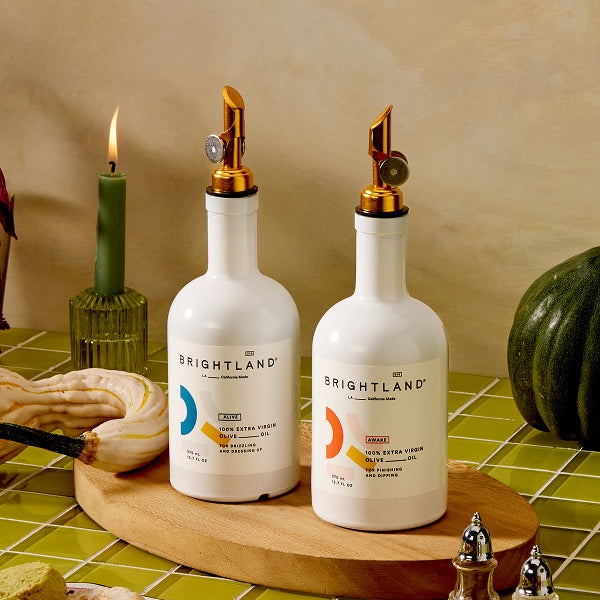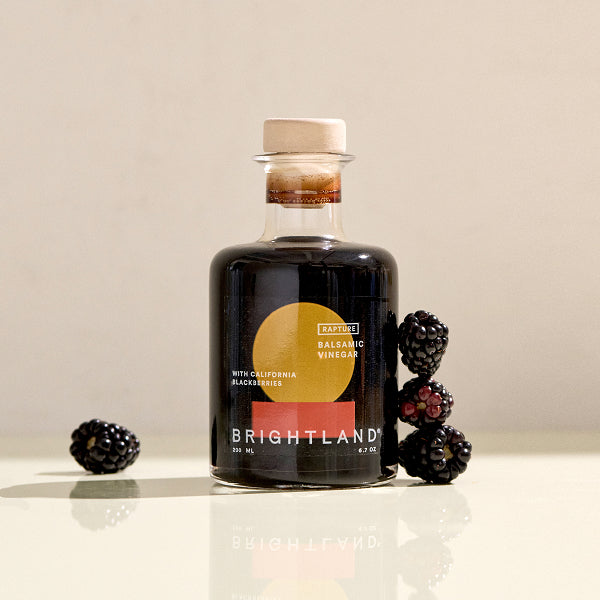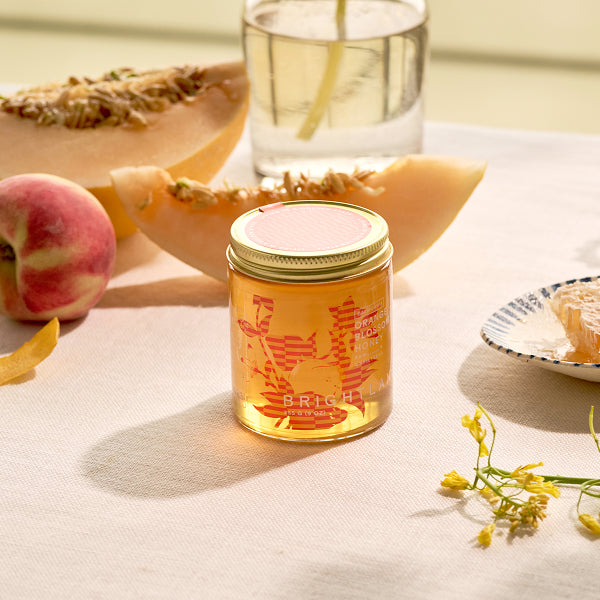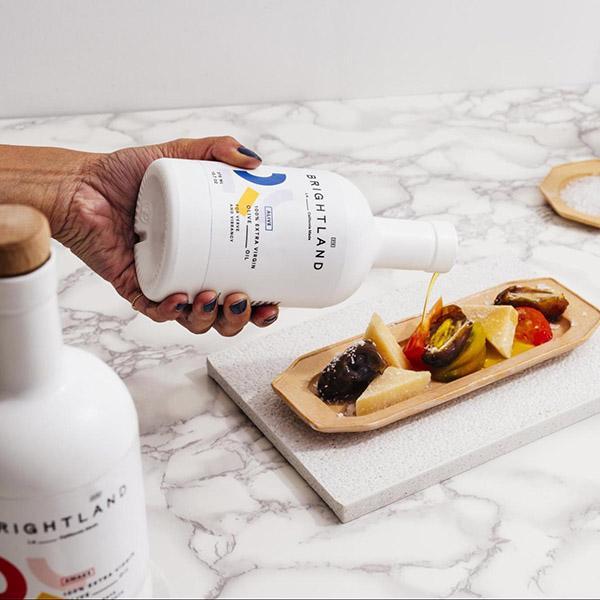Vegetable oil is carried in just about every grocery store and is often called for in recipes. You may be wondering exactly what this generic vegetable oil is and how it compares to olive oil. Here is what you need to know about olive oil vs. vegetable oil:
[close type="rte"] [open type="rte"]Olive Oil vs. Vegetable Oil Flavor
Vegetable oil is a general term that refers to a variety of oils that are derived from vegetables. Some common vegetable oils include corn oil, canola oil, palm oil, safflower oil, sesame oil, soybean oil and sunflower oil. The “vegetable oil” that you see sold on grocery shelves is a mix of these oils. The exact combination of oils depends on the manufacturer as well as the season and may vary from bottle to bottle even though the label remains the same.
Most vegetable oils are highly processed using refining methods such as heat, chemicals and more. The resulting oil is very light in color and has minimal to no flavor and fragrance. As a result, it is usually used for frying purposes or to add moisture to baking recipes without changing the overall flavor profile of the dish.
This contrasts with olive oil, which is known for its distinct peppery or grassy taste and flavor. Indeed, much of the appeal of olive oil is that flavor, and the oil is often used when chefs want to enhance the flavor of a dish as opposed to adding a neutral oil. While there are highly refined versions of olive oil available that do not have such a strong taste and smell, most people prefer fresh grassy olive oil which has that distinct flavor that sets olive oil apart.
[close type="rte"][open type="rte"]Olive Oil vs. Vegetable Oil Health Benefits
Taste and smell is not the only element that sets olive oil apart from vegetable oils. Due to the number of significant refining processes used on vegetable oil, most of the nutritional value is removed even as the oil becomes more palatable. While it is possible to find cold-pressed or expeller-pressed vegetable oil, which retains more of its nutrients, this can be very difficult to find and is usually not available in grocery stores. Certain vegetable oils do have certain nutrients —for example, sunflower oil is relatively high in vitamin E — but these are usually outweighed by the unhealthy elements such as saturated fats. The oils in your standard grocery store “vegetable oil” bottle are usually the most refined and thus least nutritious.
[close type="rte"] [open type="images" count="1"]
On the other hand, extra virgin olive oil, which is not processed, has multiple nutritional benefits. It is high in both polyunsaturated and monounsaturated fats, a.k.a. the healthy fats. It is also high in antioxidants which can fight free radical damage and help slow down the aging process. Antioxidants can also have anti-inflammatory effects on the body. It is important to note that not all olive oils have the same level of health benefits. Highly refined olive oils will lack nutrients in the same way that refined vegetable oils do. For best results, reach for extra virgin olive oil every time.
[close type="rte"] [open type="rte"]Olive Oil vs. Vegetable Oil Frying
Vegetable oil is often recommended for frying due to its relatively high smoke point, around 400 degrees Fahrenheit. While you may not know it, high-quality extra virgin olive oil actually has a similar smoke point to vegetable oil, making it appropriate for frying food as well. The smoke point of refined olive oil is a little bit lower. That is why it is important to use extra virgin olive oil if you want to fry something.

Big olive oil manufacturers cannot oversee the production of their products in the way that smaller, domestic operations can, which is why we recommend purchasing California extra virgin olive oil from a domestic producer such as Brightland. We carefully grow and harvest each batch of olives to ensure the highest quality olive oil. With so many different flavors of olive oil that can be shipped straight to your door, you never have to worry about making a dedicated grocery store trip. Shop our healthy olive oils today!
Discover Healthy Olive Oil [close type="rte"]


























